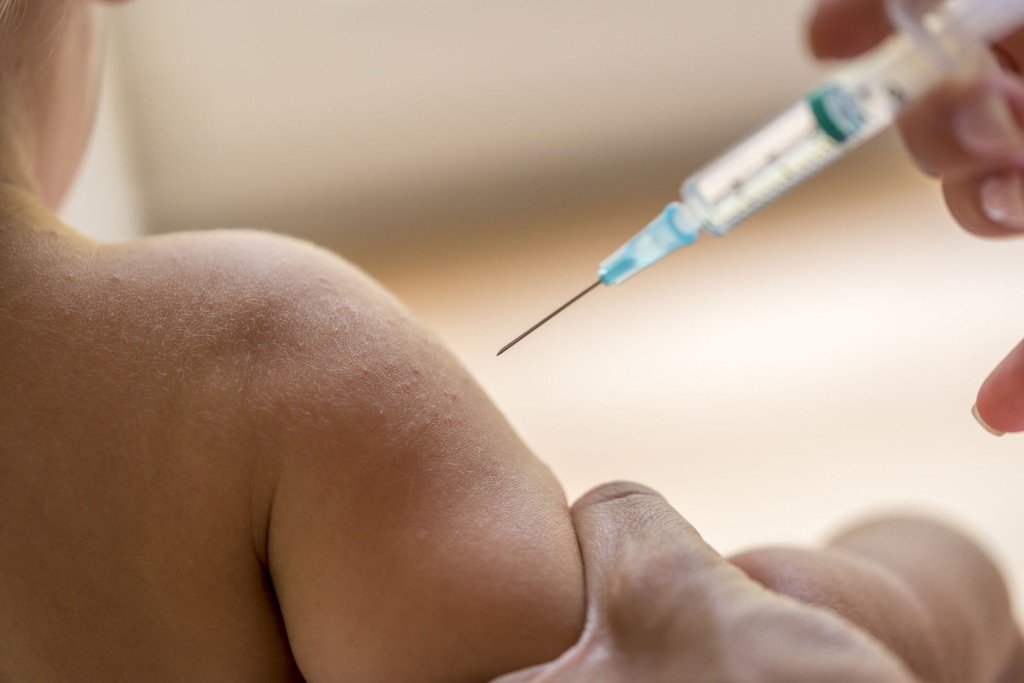Katia Bailetti, ND
Parents today want to make informed decisions about childhood vaccinations and are approaching their ND for guidance and support. Many of these parents are deciding to vaccinate their children against at least some infections, and NDs can be a valuable addition to their family’s team of medical professionals.
Offering Support
The following is a guideline for offering naturopathic vaccine support to pediatric clients and their families.
- Encourage informed decision making. Offer a list of reliable resources and highlight the importance of consulting various sources, since many have a biased perspective. Bring up the issue of childhood vaccinations with expecting couples and encourage them to begin their vaccine research before the baby arrives. The post-partum period is a major life transition accompanied by frequent sleep interruption. Many parents are surprised to learn that vaccinations typically begin within the first two months of life. This leaves little time and energy for rational decision making.
- Offer counseling support. It is common for parents who are exploring vaccine issues to feel fearful, anxious, conflicted and overwhelmed. Conflict with family members, friends and/or healthcare providers regarding vaccination decisions is also frequently reported. Gentle support is beneficial at this time, as emotions are quick to rise to the surface during pregnancy and in the post-partum period. Offer ongoing support that is not contingent on their decisions regarding vaccination. Discuss conflict resolution and stress management strategies. Encourage parents to seek others who are also making informed decisions about childhood vaccinations.
- Reduce the risk of infections. Getting sick is a normal part of childhood. In fact, early childhood infections are thought to be beneficial for optimum immune system function. However, many families today are being exposed to infections from all corners of the world on a regular basis. This is not something that was as common for our ancestors. Our current vaccination schedule provides some protection against a dozen or so infections. We can help clients reduce their child’s exposure to infections, as well as increase their ability to overcome them, by educating the parents on the following:
- How to reduce exposure to infections, such as avoiding the shared use of eating utensils and beverage containers; proper wound care is also essential in reducing the risk of infection.
- The benefits of breastfeeding, including a decreased risk of gastrointestinal and respiratory infections during the breastfeeding period and beyond.
- How immune system function is related to good-quality sleep, balanced nutrition, moderate exercise and a low stress environment.
- What to do when their child has a minor injury or infection and when to seek naturopathic or conventional medical healthcare.
- The importance of avoiding environmental toxins during infancy whenever possible. Infants and children are much more susceptible to the toxic effects of chemicals. A high-toxin load can interfere with immune system function.
Naturopathic immune support during times of higher risk of infection is also beneficial. Situations that increase the risk of infection include starting daycare or school, international travel, prolonged stressful periods and frequent exposure to people that are ill.
- Reduce the risk of complications from vaccines. Childhood vaccines can contain heavy metals (e.g., mercury and aluminum), common allergens (soy, egg protein or monosodium glutamate), antibiotics (neomycin), human or animal products (bovine serum, chick embryo, human albumin), other chemicals (formaldehyde, 2 phenoxyethanol), antigens (live attenuated measles virus) and undisclosed proprietary ingredients. Our understanding of the risks of vaccines is limited due to underreporting and the lack of long-term safety studies. The good news is that through education and naturopathic support we can increase the resiliency of children to stressors, and therefore decrease the risk of serious complications to vaccines. Encourage clients who choose to vaccinate their children to do the following:
- Explore vaccine options with their medical doctor, such as only receiving one injection per visit. This is especially important for people who have decided to delay vaccinations, since catch-up schedules usually recommend a handful of injections at the same visit.
- Review the specific contraindications and cautions that apply to each vaccine. This information typically can be found through vaccine manufacturers, medical doctors or pharmacists. Additional health conditions that could increase the risk of complications from vaccines include:
- Current infection or recovering from an infection (even a minor cold or flu)
- Health condition affecting organs of elimination
- Personal or strong family history of immune or nervous system disorders
- Chronic health condition, including constipation
- Personal or family history of a significant reaction to vaccines
- Premature birth
- Personal or family history of multiple chemical sensitivities or of serious allergic reactions.
- Significant previous exposure to toxins (including vaccination of mother during pregnancy)
- Request thimerosal-free vaccines. Thimerosal is approximately 50% mercury. Childhood vaccines that do not contain thimerosal are readily available.
- Remain in the doctor’s office for at least 15 minutes after every injection, as prompt medical treatment will be required in the event of an anaphylactic reaction.
- Maintain complete and accurate vaccination records, including the dose, injection site, lot number, manufacturer, drug name, date administered and doctor’s name.
- Avoid lowering mild fevers. Many children develop slight fevers after vaccination. Educate clients about the benefits of fevers, and discuss when and how to manage fevers naturally.
- Ensure children are as healthy as possible prior to receiving a vaccine so they are resilient to any stress caused by the vaccines.
- Follow recommendations for naturopathic vaccine support before and after vaccination. This can be tailored to clients based on their personal and family history. Supporting the nervous system, immune system, digestive system and detoxification pathways are key.
- Maintain regular pediatric visits and ensure that reactions to vaccines are reported. Medical professionals (including NDs) and the public can report vaccine reactions.
Naturopathic Vaccine Support
Patient: Two-month-old male with no significant medical history who is being exclusively breastfed.
Pre-vaccine support for lactating mother:
- 1,000-2,000mg vitamin C per day, in divided doses
- High-quality fish oil daily
- High-quality multivitamin, including folic acid
- Diet rich in foods high in folic acid (such as lentils, kale, asparagus and Brussels sprouts), as folic acid may help the body remove aluminum
- Diet low in allergens (such as eggs and dairy) and immune-suppressing foods (such as sugar and processed foods)
- Organic Astragalus tea BID
Vaccination preparation for infant:
- Ensure baby is healthy and adequately hydrated, and that bowels are moving regularly
- 1tsp of homeopathic Thuja 30C dissolved in 1c water just prior to vaccination
Post-vaccine support for mother:
- Continue vitamin C, EFAs, multivitamin, folic acid-rich foods
- 1c Astragalus, Echinacea and Avena tea BID
Post-vaccine support for infant:
- Comforting, breastfeeding and skin-to-skin contact
- 1tsp of Rescue Remedy solution prn (5 gtt Rescue Remedy in 1c water)
- Bentonite clay paste around the injection site (ensure no clay enters the site)
- Age-appropriate probiotics (including Bifidobacterium infantis) mixed with water and placed around nipple, one to two feeds per day.
- Castor oil rub on infant’s abdomen, three to four times per week
- Herbal bath twice per week, including one handful of Epsom salts fully dissolved in 1c Galium aparine and Trifolium pratense tea
- Schedule follow-up visit one week after first injection (or sooner, if needed)
Vaccine Resources
Books:
- Childhood Vaccinations: Answers to Your Questions by Katia Bailetti, ND
- Childhood Vaccinations: Making Informed Decisions by Katia Bailetti, ND
- What Your Doctor May NOT Tell You About Children’s Vaccinations by Stephanie Cave, MD and Deborah Mitchell
- Your Child’s Best Shot: A Parent’s Guide to Vaccination by Ronald Gold, MD
- Vaccinations: A Thoughtful Parent’s Guide by Aviva Jill Romm
- Natural Alternatives to Vaccination by Zoltan Rona, MD
- The Vaccine Guide: Risks and Benefits for Children and Adults by Randall Neustaedter, OMD
- The Vaccine Book: Making the Right Decision for Your Child by Robert Sears, MD
- Vaccines: The Risks, the Benefits, the Choices: A Resource Guide for Parents by Sherri Tenpenny, DO
Reporting vaccine reactions:
In Canada: Public Health Agency of Canada: www.phac-aspc.gc.ca/publicat/ccdr-rmtc/00vol26/26s1/index.html
In the U.S.: Vaccine Adverse Event Reporting System (VAERS): http://vaers.hhs.gov/
Vaccine Exemption Forms:
For Ontario, Canada: www.forms.ssb.gov.on.ca/mbs/ssb/forms/ssbforms.nsf/AttachDocsPublish/014-7470-64~1/$File/7470-64E_.pdf
For New Brunswick, Canada: www.gnb.ca/0000/pol/e/706AB.pdf
For the U.S.: National Vaccine Information Center: www.909shot.com/state-site/state-exemptions.htm
Child’s Vaccine Tracking Form: www.drbailetti.com/naturopath/pdf/vaccine%20tracking.pdf
Government Vaccine Information
Public Health Agency of Canada (PHAC): www.phac-aspc.gc.ca/im/index-eng.php
Centers for Disease Prevention and Control: www.cdc.gov/vaccines/default.htm
Vaccine Information Statements: www.cdc.gov/vaccines/pubs/vis/default.htm
Risk Awareness and Pro-Choice Organizations
Vaccination Risk Awareness Network (VRAN): www.vran.org
National Vaccine Information Center: www.nvic.org/
Think Twice Global Vaccine Institute: http://thinktwice.com/
Parents Requesting Open Vaccine Education (PROVE): www.vaccineinfo.net
 Katia Bailetti, ND has a pediatric practice based in Toronto and regularly speaks to parents across Canada about childhood vaccinations. A graduate of CCNM, Dr. Bailetti has recently authored the book Childhood Vaccinations – Answers to Your Questions and corresponding workbook Childhood Vaccinations – Making Informed Decisions. Dr. Bailetti remains an active member of the APND, where she recently served on the executive board, as well as the OAND and CAND.
Katia Bailetti, ND has a pediatric practice based in Toronto and regularly speaks to parents across Canada about childhood vaccinations. A graduate of CCNM, Dr. Bailetti has recently authored the book Childhood Vaccinations – Answers to Your Questions and corresponding workbook Childhood Vaccinations – Making Informed Decisions. Dr. Bailetti remains an active member of the APND, where she recently served on the executive board, as well as the OAND and CAND.





